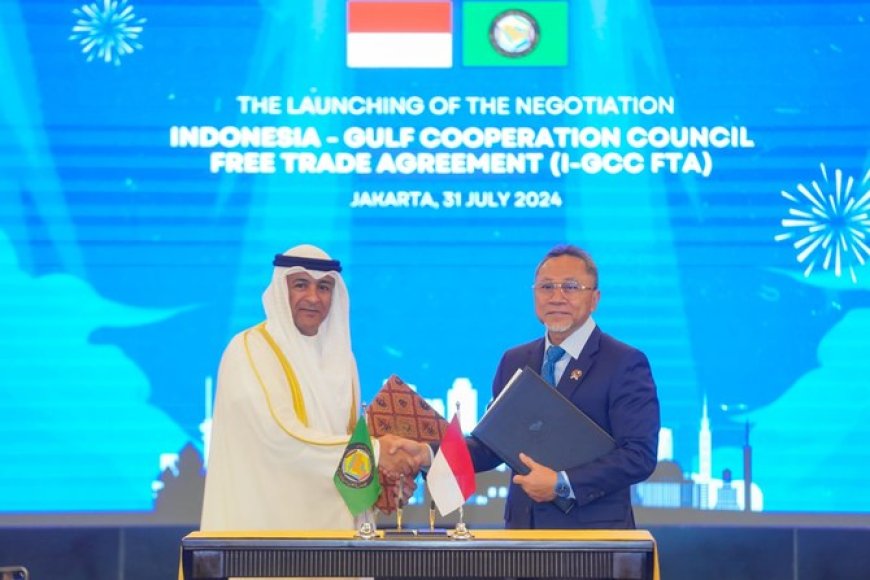GCC and Indonesia Initiate Free Trade Agreement Talks
In a significant step towards bolstering economic ties, the Gulf Cooperation Council (GCC) and Indonesia have officially commenced negotiations for a free trade agreement (FTA). The formal announcement was made today in Jakarta, where GCC Secretary-General Jassim Mohammed Al-Budaiwi and Indonesian Trade Minister Zulkifli Hasan signed the agreement to begin talks.

In a significant step towards bolstering economic ties, the Gulf Cooperation Council (GCC) and Indonesia have officially commenced negotiations for a free trade agreement (FTA). The formal announcement was made today in Jakarta, where GCC Secretary-General Jassim Mohammed Al-Budaiwi and Indonesian Trade Minister Zulkifli Hasan signed the agreement to begin talks.
The initial round of discussions is slated to start in September, marking the beginning of what is anticipated to be a comprehensive and prolonged negotiation process. Both parties aim to conclude the agreement within the next two years.
“This is a historic moment,” said Minister Hasan, highlighting the potential benefits of the agreement. “The GCC countries possess strong economies and substantial purchasing power. Although our historical relations are longstanding, our current trade volumes are relatively modest. We hope that this agreement will substantially enhance our economic interactions.”
Indonesia’s trade with GCC nations reached approximately $15.7 billion last year. The country’s primary exports to the region include palm oil, coffee, jewelry, and motor vehicles. Hasan noted that the new FTA could address existing trade barriers and open doors to new sectors, such as healthcare and seafood, which have been hindered by differing standards and regulations.
The GCC, which includes Saudi Arabia, Oman, Qatar, Bahrain, Kuwait, and the UAE, already has a Comprehensive Economic Partnership Agreement (CEPA) with Indonesia. The CEPA, which went into effect last September, was Indonesia’s first trade agreement with a GCC member. The new FTA aims to expand this cooperation to include all GCC member states.
Al-Budaiwi emphasized the GCC’s interest in deepening economic engagement with Indonesia, noting that “the trade relationship with Indonesia is multifaceted and well-established. Our goal is to unlock new opportunities and further increase trade volumes.”
Both sides anticipate that the FTA will not only enhance trade but also strengthen broader economic and strategic ties between Indonesia and the Gulf nations. The agreement is expected to address various trade and investment barriers, facilitating smoother business interactions and opening up new areas for cooperation.
As the negotiations progress, stakeholders from both regions will be keenly watching to see how the agreement could reshape trade dynamics and contribute to economic growth in both Indonesia and the GCC countries.













































